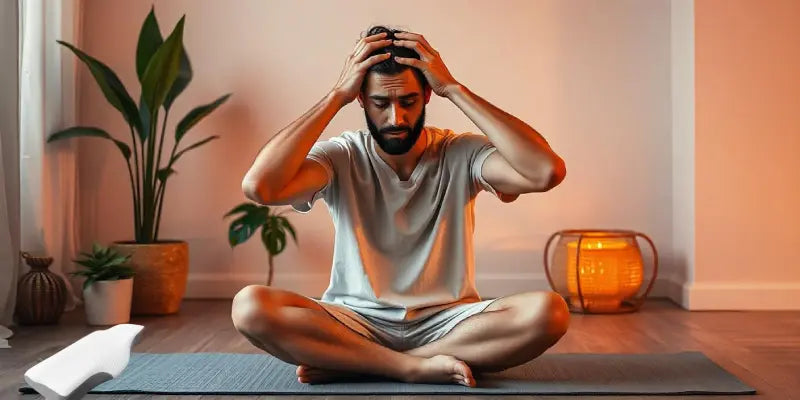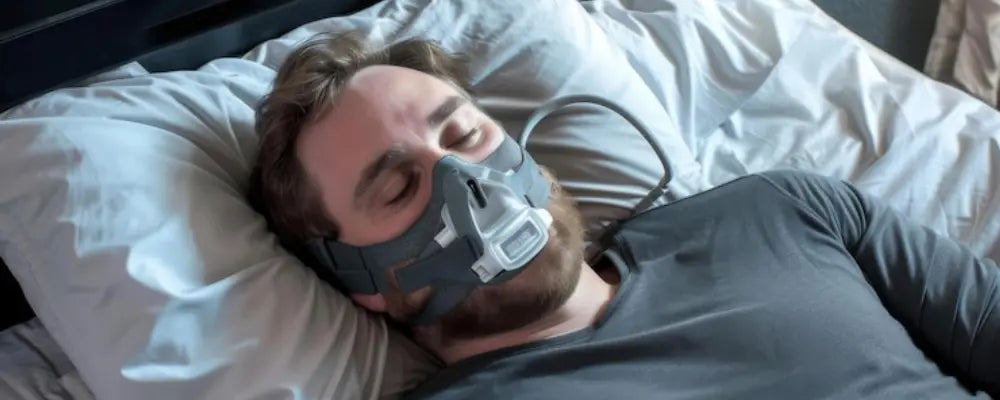
How Your Body Burns Calories While You Sleep
Those who want to lose weight, only know how every calorie counts. To lose fat, it is important that you burn more calories than you consume. Most people start with gym, lifting weight, sweaty run, going for long walks when they want to burn calories. However, did you know that even when you're sound asleep, your body is always burning calories?
Why Do Your Body Burn Calories When You Sleep?
When you are sleeping, your organs such as the heart, brain and kidneys are working and to function properly all of these need energy in the form of calories. Also, your body repairs muscles and tissues that are exposed to wear and tear during the day due to workout or any other physical activities. The process of repair and growth requires energy.
Your brain, which works 24/7 needs a steady supply of glucose, which comes from breakdown of carbohydrates and fats, this process needs calories. Also, when you sleep, your body regulates its temperature. This process is known as thermoregulation and it requires energy.
How Many Calories are Burned While Sleeping?
The exact number of calories burned while sleeping varies from person to person; on average, a person burns about 0.4 calories per pound of body weight per hour of sleep. For example, if you weigh 70 Kg, you might burn around 60 calories per hour of sleep.
So, if you sleep for about 8 hours a night, you could burn approximately 480 calories just by sleeping!
How to Calculate How Many Calories you Burn While Sleeping?
The exact number of calories burned while sleeping varies from person to person; on average, a person burns about 0.4 calories per pound of body weight per hour of sleep. To calculate how many calories you burn while sleeping, you can use your basal metabolic rate (BMR) to estimate your hourly calorie burn while awake, and then multiply that number by 0.85:
- Calculate your BMR using the following formulas:
- Men: BMR = 66.5 + (13.75 × weight in kg) + (5.003 × height in cm) – (6.75 × age)
- Women: BMR = 655.1 + (9.563 × weight in kg) + (1.850 × height in cm) – (4.676 × age)
- Divide your BMR by 24 to get your hourly calorie burn while awake
- Multiply the hourly calorie burn by 0.85 to account for your lower metabolic rate while sleeping
For example: You are a 24 year old woman weighing 70 Kg and 167 cm height, your BMR will be 1521.24. Now dividing BMR with 24, we’ll get 63.38, now this is your hourly calorie burn while awake. Multiplying 63.38 * 0.85, we get 53.87.
If you are a 24-year-old woman weighing 70 kg and 167 cm tall, you would burn approximately 430.96 calories during 8 hours of sleep based on this method. You can also calculate the calories you burn while sleeping.
Which Stage of Sleep Uses the Most Calorie Burn?
Our body undergoes different stages of sleep throughout the night. An average sleep cycle should look like this:
- Stage 1: This is when you first begin to fall asleep quickly and faster come back to consciousness.
- Stage 2: We spend almost half of the night in stage 2, sometimes known as light sleep. Your heart rate, respiration rate, and mental activity all begin to decrease.
- Stage 3 or deep sleep: Because of the slow-wave brain activity that occurs during this stage, it is sometimes referred to as slow-wave sleep. This is the hardest stage to wake you up from.
- Stage 4 or Rapid-eye-movement (REM) sleep: Most dreams occur during the rapid-eye movement (REM) sleep phase. The name comes from the fact that your eyes can be seen moving quickly under your eyelids while your muscles are temporarily paralyzed, stopping you from acting out those fantasies. At this point, blood pressure, heart rate, respiration, and brain activity all begin to rise once more.
You'll have finished one sleep cycle once you've passed through all four stages of sleep. This might go on for 70 or 120 minutes. Next, you'll start over in a new cycle. So check your sleep cycle on the sleep calculator.
REM burns the most calories since it is linked with faster heart rate and brain activity than the other non-REM stages. In fact, it is frequently impossible to tell the difference between brain activity during REM sleep and brain activity while awake using only electrical brainwave activity.
On the other hand, you burn the fewest calories when you're in deep sleep because your body temperature, heart rate, and brain activity are all at their lowest points.
What Factors Affect How Many Calories You Burn
When it comes to burning calories, several factors influence how many you burn each day.
Here’s an easy breakdown of the key factors:
Your Body Weight
The more you weigh, the more calories your body needs to function. A heavier body requires more energy for things like breathing, moving, and even resting. So, if you weigh more, you’ll naturally burn more calories.
Your Muscle Mass
Muscle burns more calories than fat, even when you're not moving. If you have more muscle, your body will burn more calories, even while at rest. That’s why strength training, which helps you build muscle, can increase the number of calories you burn.
Your Age
As you get older, your metabolism tends to slow down. This means your body burns fewer calories as you age, especially if you lose muscle mass. However, keeping up with exercise, especially strength training, can help maintain muscle and boost your metabolism.
Your Workout Routine
The kind of exercise you do impacts how many calories you burn. Aerobic exercises like running or swimming burn more calories during the activity, while strength training builds muscle, which helps you burn more calories even when you’re not working out.
Your Workout Intensity
How hard you work out matters. High-intensity exercises, like HIIT (high-intensity interval training), burn more calories in less time compared to gentler activities. Plus, intense workouts keep your metabolism high even after you’ve finished exercising.
Conclusion
Understanding how your body burns calories while you sleep can change how you think about staying healthy. Even when you're resting, your body is busy repairing itself and keeping everything running smoothly.
If you're looking to improve your sleep, consider using a Memory Foam Pillow. It's designed to support your head and neck comfortably, which can help you sleep better and wake up feeling more refreshed. By getting better sleep, you're not only helping your body burn calories efficiently but also supporting your overall well-being.








